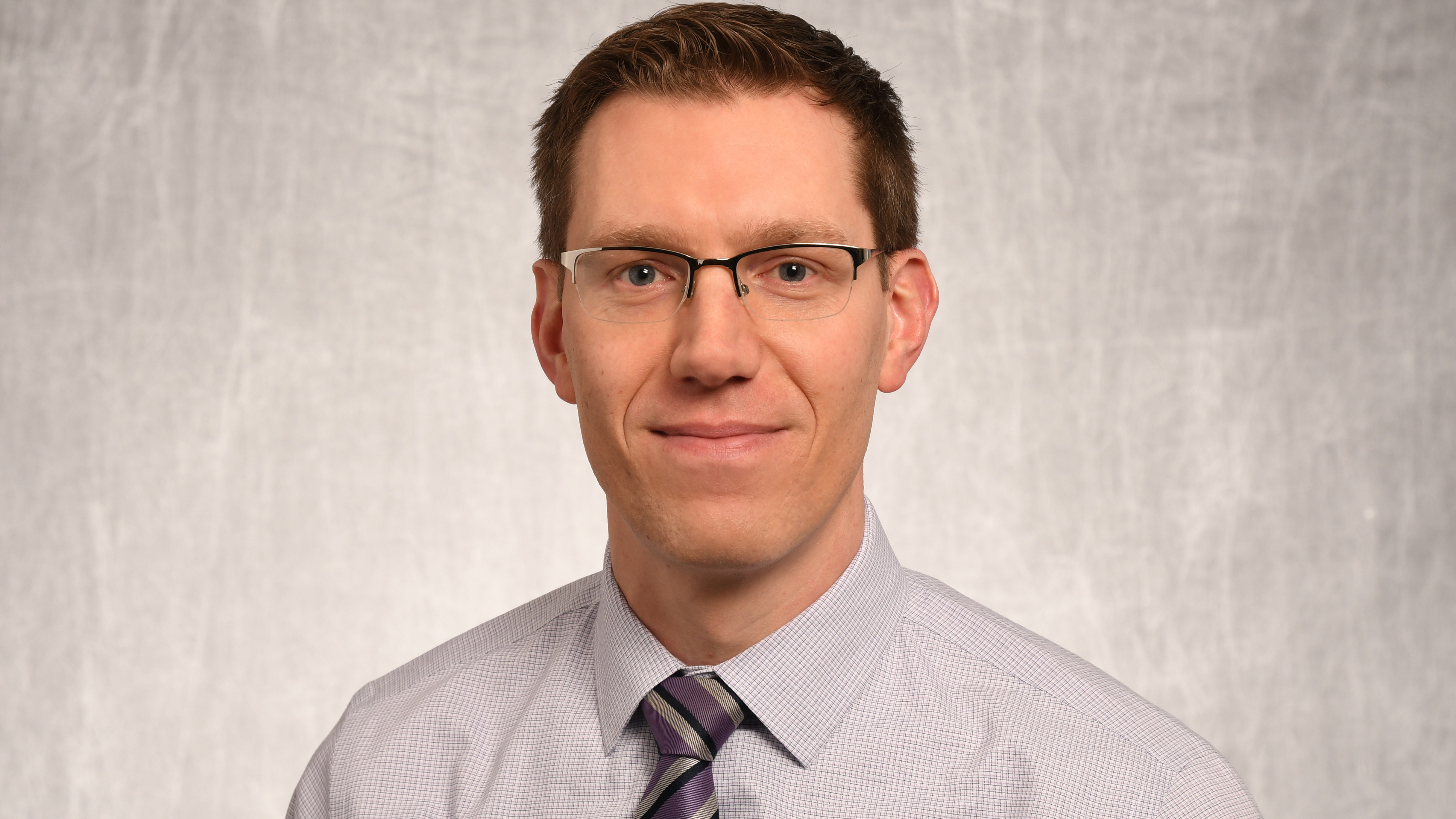Friday, Feb 21, 2020
Barr has been associate dean since 2018
Dr. Jason Barr has been appointed to serve as the interim dean of Rider University’s College of Education and Human Services (CEHS). The appointment began Feb. 1.
Barr has served as the College’s associate dean since 2018. In that role, he has helped support and expand the College's education programs, manage grant opportunities and maintain accreditation requirements. He managed the process to earn reaccreditation from the Council for the Accreditation of Educator Preparation (CAEP), which the college was granted in 2019.
The appointment followed the announcement that the former dean, Dr. Sharon Sherman, would step down from the position and return to the faculty.
"Dean Sherman has served Rider's CEHS for over 10 years and has positioned the College to be a trailblazer in the training of teachers and human service professionals across New Jersey and around the nation," Barr says. "I look forward to building on the momentum she created. I wish to thank Dean Sherman for all she has accomplished and wish her well as she transitions back to the faculty."
Prior to his arrival at Rider, Barr served as the associate dean of the School of Education at Monmouth University and the dean of the College of Education and Rehabilitation at Salus University.
As an academic, Barr’s scholarship has focused primarily on the development of empathy in children and adolescents. “What the research has found is that empathy is one of those things that can’t be taught,” he says. Rather, empathic skills can be fostered in the classroom by giving children opportunities to have important social interactions with one another. Examples of this can include having debates, talking about current events, and discussing issues of fairness and equality.
“The essential goal is that if you and I are debating a particular topic, you might have a different point of view from me, and when I listen to you I can grow in my ability to respond and understand because you’re presenting a totally new way of thinking that I haven’t thought about before.”
According to Barr, there is currently a paradigm shift in the classroom, with movement away from heavy emphasis on standardized tests, and more toward the social-emotional development of children.
“If you go back several years, it was all about high-stakes testing,” he says. “Schools received funding based upon how students performed, and teachers’ jobs were on the line based on the test results. Now, we’re starting to see more and more time and space built into the school day for children to interact with one another to develop their social skills, as opposed to just immediately coming in, doing a task, and focusing on the lesson plan.”
Barr has expanded his research on empathy to children with Autism, with a goal of dispelling the myth that children with Autism lack empathy. In fact, he says the opposite appears to be true. His collaborative research with a colleague, who is a speech-language pathologist, has found that this population is rather high in empathy but appears to lack the verbal and language abilities to express it in appropriate ways.
“The hope is that the research will have clinical implications for how we understand and work with children with Autism, especially those children with language and verbal deficits,” he says.
As a student at the University of Hartford, Barr was a criminal justice major with his sights set on becoming an FBI agent. “I had no interest in children or schools,” he jokes. All that changed when, as an undergraduate, he spent time working at the Hartford County Correctional Center, a pre-sentence facility where people who were charged with crimes were housed while awaiting trial.
He primarily worked with 16- and 17-year old inmates, helping to develop aftercare resources for them so that once they got out of jail they would be better equipped for the next phase of their lives.
“It was fascinating and very sad all at the same time,” he recalls. “I saw the criminal justice system as very reactive and I really wanted to be much more proactive.”
So he decided to major in psychology, with the goal of working with kids. “I saw schools as a great place to be proactive—to be able to help children develop before they ended up in the criminal justice system.”
He would go on to earn a master’s in educational psychology and a doctorate in applied developmental psychology. He has held teaching and research roles at institutions including New York University, Fordham University, Rowan University and the IDEA Center, Inc., a nonprofit organization dedicated to improving student learning in higher education.

